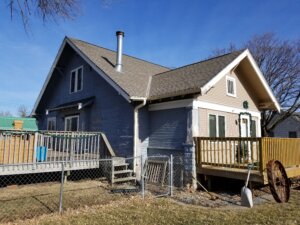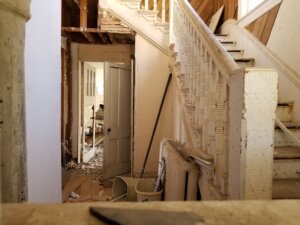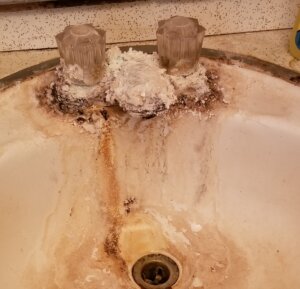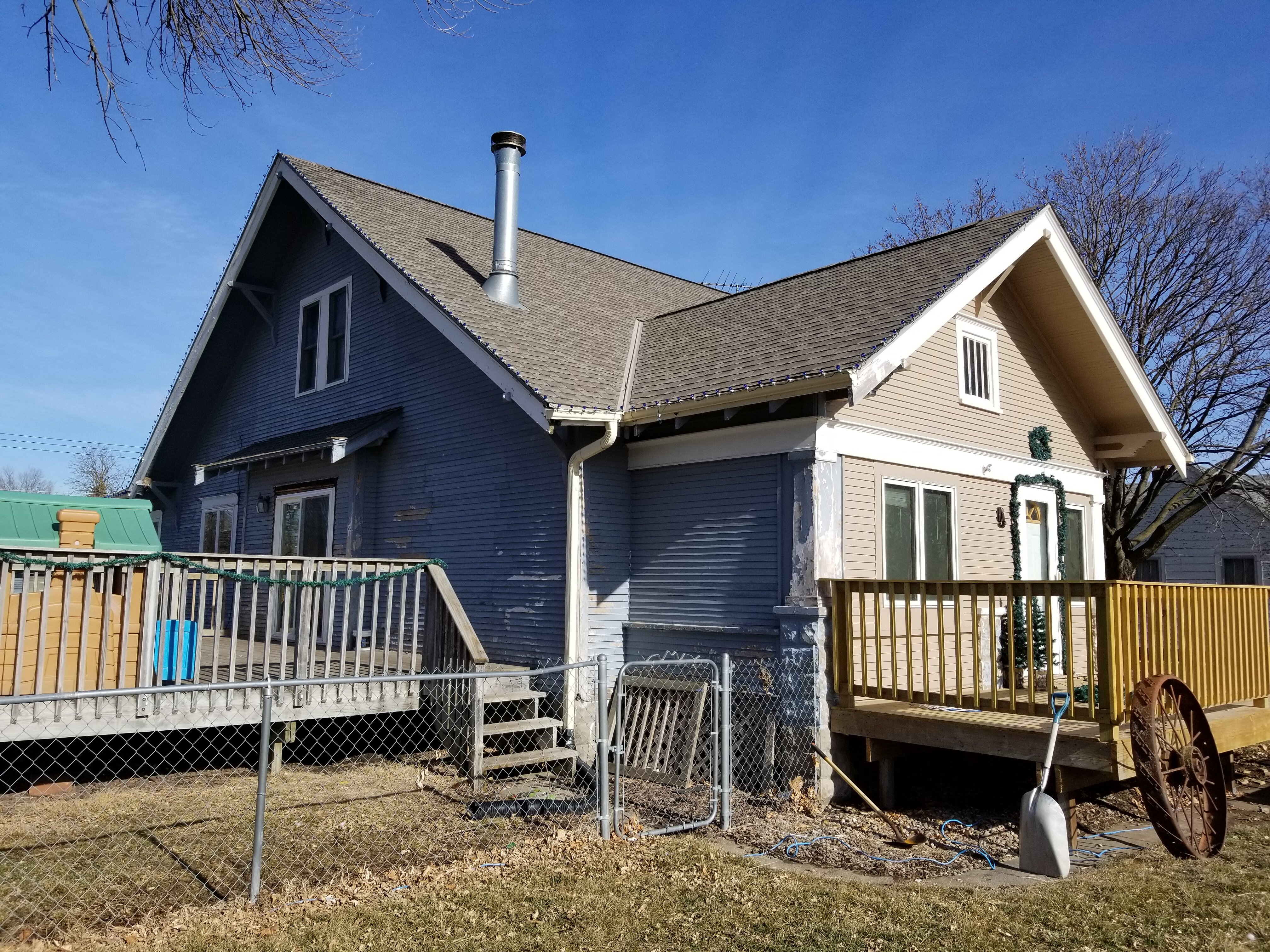
Do you have an unwanted property sitting vacant and gradually falling apart the longer it sits?
We meet with people who have vacant homes where windows have been broken, the interior walls and fixtures have been vandalized, and in some cases code enforcement notices are piling up.
If you own a vacant property and are concerned that its condition may make it difficult to sell, this blog will show you how to sell a vacant property quickly and hassle-free — while still getting the most money possible from the sale.
First, let’s talk about why it’s difficult to sell a vacant house and some serious liability issues you should be aware of. Then we’ll discuss how to value a vacant home, and options for selling your home that you may not have considered.
What you need to know to sell a vacant house…
If the house has been vacant for a couple of months, and is in good shape, you shouldn’t have issues selling it.
However, when you have missing/broken items (even small) this can mean banks may not lend on the house and a traditional buyer can’t purchase it.

Property criteria that a bank needs to see before lending on it:
- No termites or wood-destroying insects
- No damage to the roof
- No damage to the exterior (cracks in walls, beams showing, compromised wall, etc.)
- No foundation damage
- No loose writing
- No exposed electrical
- All utilities functioning properly
- Must have safe and reasonable access
- The heating system must be operating normally and heat the house properly
- No chipping or peeling lead-based paint
- Adequate access to crawl spaces and ventilation in crawl spaces
- Properly functioning water heater
- Access to tap water
- No mold or any other health concerns (like animal or human feces)
- No safety concerns (like having a steep staircase without handrails)
- Must be considered “marketable” (Can it sell? Is it pleasing to buyers?)

If any one of these is “broken,” potential buyers won’t be able to get a loan on it until the items in question are repaired.
It’s important to figure out if crucial items need to be fixed prior to listing. If you’re not sure how to determine these essential repairs yourself, get an inspection done (a typical home inspection costs anywhere from $250-$500), so you can get a list of things to tackle prior to putting your home on the market.
If your vacant home has some of these issues and you don’t want the hassle of making the repairs, you can consider selling to an as-is home buyer like Anna Buys Houses. We will provide you with a free, no-obligation quote to take that project off your hands as it sits.
Liabilities of keeping a vacant house
There are severe liabilities that can arise when you let your house sit vacant for too long.
One of these liabilities is adverse possession, often referred to as “squatter’s rights.” Adverse possession occurs when someone moves into a vacant home without the owner’s knowledge or permission and then claims the property as their own. Is this legal? Unfortunately, the answer is yes. However, they must meet certain criteria which vary based on the state the property is in.
The main requirements for adverse possession are that the “squatter” must:
- Openly live on the property (use the front door, get their mail delivered, have utilities in their name, or anything else that makes it obvious that they are living in the home). No sneaking in the back door or boarding up the windows to hide their presence!
- Use the home as their primary residence without permission from the legal owner.
- Have exclusive possession of the property. While other squatters may also live there, the legal owner/s do not.
- The squatter must maintain continuous possession of the property for a certain period (this varies by state but can be as little as 2 years in Arizona to 30 years in Louisiana and New Jersey).
Additionally, the squatter may have to pay property taxes during the time they live there and/or produce a document or deed related to ownership of the property (even if it is a counterfeit document with zero legal weight). It’s important to know the laws in the state where you own a vacant property and ensure that you are checking up on it periodically. Adverse possession can land you in a court battle that can take months to sort out, not to mention the legal fees. If an unwelcome tenant damages your home, you’ll be out the repair costs as well.
Another liability of a vacant property is real estate scammers who find vacant properties and attempt to rent or sell them. In 2022 one of our vacant properties was a target of this type of scam. The scammer used real photos of our property and created a Facebook ad to advertise it for rent. Our realtor was in the middle of showing the home when another couple arrived to look at it. She did not have an appointment with them and was the only authorized person to show the home, so she asked how they heard about it. They showed her the fake Facebook ad and said the agent who was renting it told them he was running late, and they should send him their deposit to hold it. In this situation the scammer planned to take their money and run. Luckily, our realtor was there to stop the scam from going through.
How to value a vacant house
This can be a tough one especially if you have updates that need to be done, or any bank loan-required items are missing.
In order to determine the market value of your house, you need to find similar homes to yours in size and condition that have sold in the past 6 months to 1 year for comparison. One challenge is that a lot of vacant homes (that need work) don’t typically sell on the open market. They sell off-market to investors or family members. However, you can search sites like Zillow and Redfin for comparable properties.
Be aware that if your property needs work done, the house will be worth significantly less than the updated retail homes selling on the open market.
For additional information about renovating a property, check out our blog about increasing your home’s resale value with smart repairs and remodels.
Who you can sell to
If you won’t be able to sell your house to a traditional buyer (a family looking for a “move-in ready” home) due to its condition, then your best and only option is an investor.
Investors are usually the only ones willing to fix up a house (sometimes you find a family that loves rehab projects and have the time to fix up their primary residence, but this is rare).
Realistically, you have two choices:
- Sell on the open market waiting for an investor or a family who wants to take on a big rehab project to make an offer — (Investors on the open market typically buy at a big discount AND like with other traditional buyers you still must pay closing costs and agent fees).
- Or… Sell it off-market to an investor, without an agent — (there are SOME investors (like us) that go directly to the property owner, and make a fair cash offer with no fees or closing costs attached.
To keep your vacant home from decreasing in value by falling into further disrepair or having a squatter stake their claim, contact us for a free, no obligation quote.

